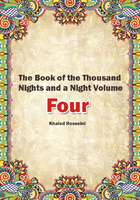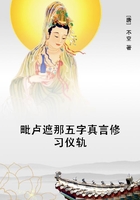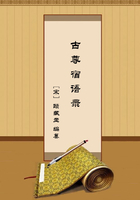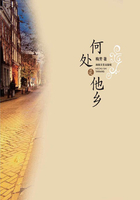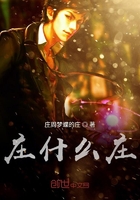CEREMONIAL MAGIC
The above title has been selected, chiefly, because, in most works treating upon magic we find it wrongly used, and therefore, take the opportunity of explaining the matter, for, there were no such terms in the vocabulary of the ancient Magi.
It is unfortunate, that, words of ancient origin are not more carefully used, and that, we should attach so many different meanings to the same word.The terms "ceremony" and "ceremonial" are nothing more nor less than, what that eminent critic, John Ruskin, would designate as "bastards of ignoble origin," which, somehow or another, have usurped the places of "rite" and "ritual." The word "rite" has descended to us from the Latin "ritus" of our Roman ancestors, and they received it from the more ancient "riti" of the Sanskrit, the Greek equivalent of which is "reo," and means the method or order of service to the gods, whereas, "ceremony" may mean anything and everything, from the terms of a brutal prize fight to the conduct of divine service within the church.But, no such chameleon-like definition or construction can properly be placed upon the word "rite," for it means distinctly, if it means anything at all, the serious usage and sacred method of conducting service in honor of the gods, or of superiors, and requires the attendance of the prophet or priest, or some one duly qualified to fulfill such sacred functions for the time being.The ritual of magic, then, is the correct title of this present study, and as such, we shall, henceforth, term it as we proceed with the course.
Man is especially, and above all creatures, an organizing force, and when to this fact, we add the most interior and powerful of his sentimental instincts--veneration for the powers that be, and for the higher, invisible forces of Nature, his "religiosity," as it has been aptly termed, we cannot wonder that, the earliest races of which we possess any record are chiefly distinguished for their imposing and elaborate religious rites.In fact, it is to the stupendous temples and a colossal sacerdotalism, that, we are indebted for nine-tenths of the relics and records which we possess ofthem.So true is this that, from what we have been able to discover, we are quite justified in asserting that the ancient races were, above all other things, a profoundly religious people.The temple was the center around which revolved all their genius and art, and the sacred edifice became their grandest achievement in architecture, and its high priest the most powerful individual in the state.In fact, it was in consequence of the real power invested in such sacred office that it was so intimately connected with the throne, and why royalty so frequently belonged to the priesthood or exercised priestly functions.And there can be no real doubt, but that, amongst the pastoral and more spiritual races of Earth's earliest inhabitants, the priest, by reason of his superior wisdom, was the first law-giver; and, by virtue of his sanctity of person and elevation of mind became their first, primitive king, a patriarchal monarch, whose scepter and symbol of power was the shepherd's peaceful crook; just as among the ruder nomads of the inhospitable North, we find the greatest hunters invested with the dignity of chief, whose significant symbol and scepter of royalty, upon their Nimrod thrones, was the trusty, successful spear.And the times in which we live have bad their full effect upon these symbols, so significant of rule.The monarch has transformed the spear into the less harmful mace, while the Church has added an inch of iron to the crook.Therefore, the former has become less war-like, and the latter less peaceful, and, verily, in actual life we find them so,The patriarchal sire, head of the tribal household, was the original priest; and the hearthstone the first altar around which the family rites were performed; and from this pure and primitive original have been evolved, through progressive ages, the stately temple and the sacred person of the despotic pontiff; from the sincere prayer the pure aspirations of the human heart and the joyous offerings of fruits and flowers to the invisible powers around them; and from the souls of their beloved ancestors has arisen the costly and complicated ritual of theology.And, if the theologians of to-day really knew the lost, secret meaning of their complicated rituals, and the unseen powers lying behind their external symbols, their anxieties for the continued life of their dying creeds would be turned to new hopes and faith, which could be demonstrated to theirequally blind followers; that, that which they were teaching they knew, and could practically use the knowledge given forth in their sanctuaries; and, instead of offering up their supplications to an imaginary, personal Deity, their words, rites, and ceremonies, would take on the form and power that such should command, and they would become truly, what their title really means, a doctor of the soul.Then could they, intelligently, lead and direct the souls of their followers to the path of Christ (Truth), which leads up to salvation; not a vicarious atonement, but gaining the at- one-ment through the individual soul's development to a conscious relation, to that Divine spirit, we call God, where it can say "I know."Out of those simple gifts, which were the spontaneous offerings of loving remembrance and unselfish charity, have grown the prayers, penances, sacrifices, and servile worship, of sacerdotalism.Out of the paternal consideration and love of the aged sire has evolved the haughty, chilling pride of the selfish, isolated priest, and which reflects its baneful influence upon the worshipers at their feet.They have also changed their once sacred, faithful, and reverent, obedience into suspicion and distrust, and with the educated to utter disgust.The light has been extinguished, and priest and people alike are groping about in darkness.

